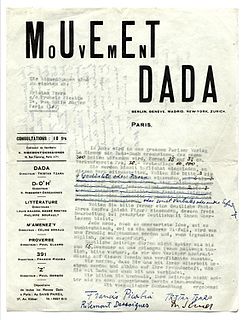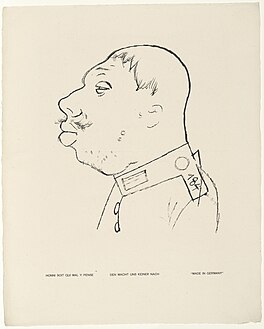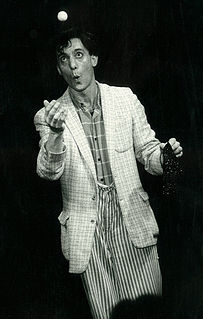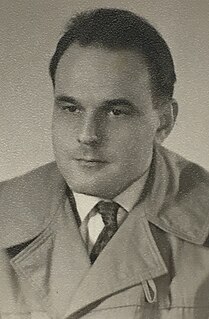 W
WAnne Frank: The Biography is the first full biography of Holocaust diarist Anne Frank. Written by Melissa Müller it was initially published in 1998 in Germany. The book was the basis for the mini-series Anne Frank: The Whole Story (2001).
 W
WVictor Auburtin was a German journalist and writer. His style was idiosyncratic and at times pithy: he was a master of the German form of the Feuilleton genre.
 W
WThe Concept of Nature in Marx is a 1962 book by the philosopher Alfred Schmidt. First published in English in 1971, it is a classic account of Karl Marx's ideas about nature.
 W
WDada or Dadaism was an art movement of the European avant-garde in the early 20th century, with early centres in Zürich, Switzerland, at the Cabaret Voltaire ; New York Dada began circa 1915, and after 1920 Dada flourished in Paris. Developed in reaction to World War I, the Dada movement consisted of artists who rejected the logic, reason, and aestheticism of modern capitalist society, instead expressing nonsense, irrationality, and anti-bourgeois protest in their works. The art of the movement spanned visual, literary, and sound media, including collage, sound poetry, cut-up writing, and sculpture. Dadaist artists expressed their discontent toward violence, war, and nationalism, and maintained political affinities with radical left-wing and far-left politics.
 W
WDadaglobe was an anthology of the Dada movement slated for publication in 1921, but abandoned for financial and other reasons and never published. At 160 pages with over a hundred reproductions of artworks and over a hundred texts by some fifty artists in ten countries, Dadaglobe was to have documented Dada's apogee as an artistic and literary movement of international breadth. Edited by Dada co-founder Tristan Tzara (1896-1963) in Paris, Dadaglobe was not conceived as a summary of the movement since its founding in 1916, but rather meant to be a snapshot of its expanded incarnation at war's end. Not merely a vehicle for existing works, the project functioned as one of Dada's most generative catalysts for the production of new works.
 W
WHasko is the title of the most successful novel of German pedagogue, bard, theatre maker and writer Martin Luserke. It is published in German, Dutch and French language.
 W
WKrake was a Dutch sailing ship with the identifier ZK 14. It was bought by the German progressive pedagogue, bard and writer Martin Luserke. The former fishery vessel was deployed as his floating poet's workshop. It cruised the shallow coastal regions of The Netherlands, (Germany), Denmark, Southern Norway and Southern Sweden as well as channels and rivers between North Sea and Baltic Sea. In harbours it was visited by a larger quantity of mostly younger people who attended readings and taletellings. Krake became very well-known during 1934 and 1938 and still is a topic in German literature, scientific literature, local museums, libraries, archives, encyclopaedias, and lectures. One of its later well-known visitors was German pilot Beate Uhse.
 W
WMemoirs of an Anti-Semite is a novel by Gregor von Rezzori. Originally published in Germany in 1979, and translated into English by Joachim Neugroschel in 1981.
 W
WThe New Objectivity was a movement in German art that arose during the 1920s as a reaction against expressionism. The term was coined by Gustav Friedrich Hartlaub, the director of the Kunsthalle in Mannheim, who used it as the title of an art exhibition staged in 1925 to showcase artists who were working in a post-expressionist spirit. As these artists—who included Max Beckmann, Otto Dix, George Grosz, Christian Schad, Rudolf Schlichter and Jeanne Mammen—rejected the self-involvement and romantic longings of the expressionists, Weimar intellectuals in general made a call to arms for public collaboration, engagement, and rejection of romantic idealism.
 W
WOn the Natural History of Destruction is a 1999 book by the German writer W. G. Sebald. Its original German title is Luftkrieg und Literatur, which means "Air war and literature". It consists of essays about literature and writers, through which Sebald discusses the German processing of World War II.
 W
WEin-Mensch-Theater is a German expression for a traveling theater, within the owner is writer, director, stage designer, performer and sometimes even his own tour manager in one person.
 W
WA Place in the Country consists of six essays or monographs by W.G. Sebald, each devoted to a specific writer or artist.
 W
WThe State is a book by German sociologist Franz Oppenheimer first published in Germany in 1908. Oppenheimer wrote the book in Frankfurt am Main during 1907, as a fragment of the four-volume System of Sociology, an intended interpretative framework for the understanding of social evolution on which he laboured from the 1890s until the end of his life. The work summarizes Oppenheimer's general theory on the origin, development and future transformation of the state. The State, which Oppenheimer's missionary zeal pervades, was widely read and passionately discussed in the early 20th century. It was well received by—and influential on—as diverse an audience as Zionist settlers in Palestine (halutzim), American and Slavic communitarians, West German Chancellor Ludwig Erhard, and anarcho-capitalists like Murray Rothbard.
 W
W"Stranger, Bear Word to the Spartans We..." is a short story by the German author Heinrich Böll (1917–1985). It tells the story of a seriously wounded soldier during World War II being carried on a stretcher through the school which he left three months earlier, because the school is being used as a makeshift military hospital. The narrator slowly notices details confirming where he is, but ignores and explains them away in an internal monologue. At the end of the story, in the art room, he sees unmistakable confirmation that he is indeed in his old school: his own handwriting in chalk on the blackboard: Stranger, bear word to the Spartans we...
 W
WVergeltung is the second novel of the writer Gert Ledig (1921-1999). It is an apocalyptic autobiographical anti-war novel. It mines the author's own experiences and is considered an important example of the literary realism genre of postwar novel.
 W
WTheodor Wolff was a German writer who was influential as a journalist, critic and newspaper editor. He was born and died in Berlin. Between 1906 and 1933 he was the chief editor of the politically liberal newspaper Berliner Tageblatt.